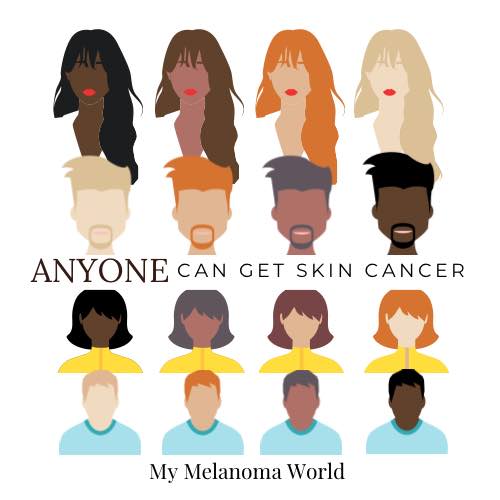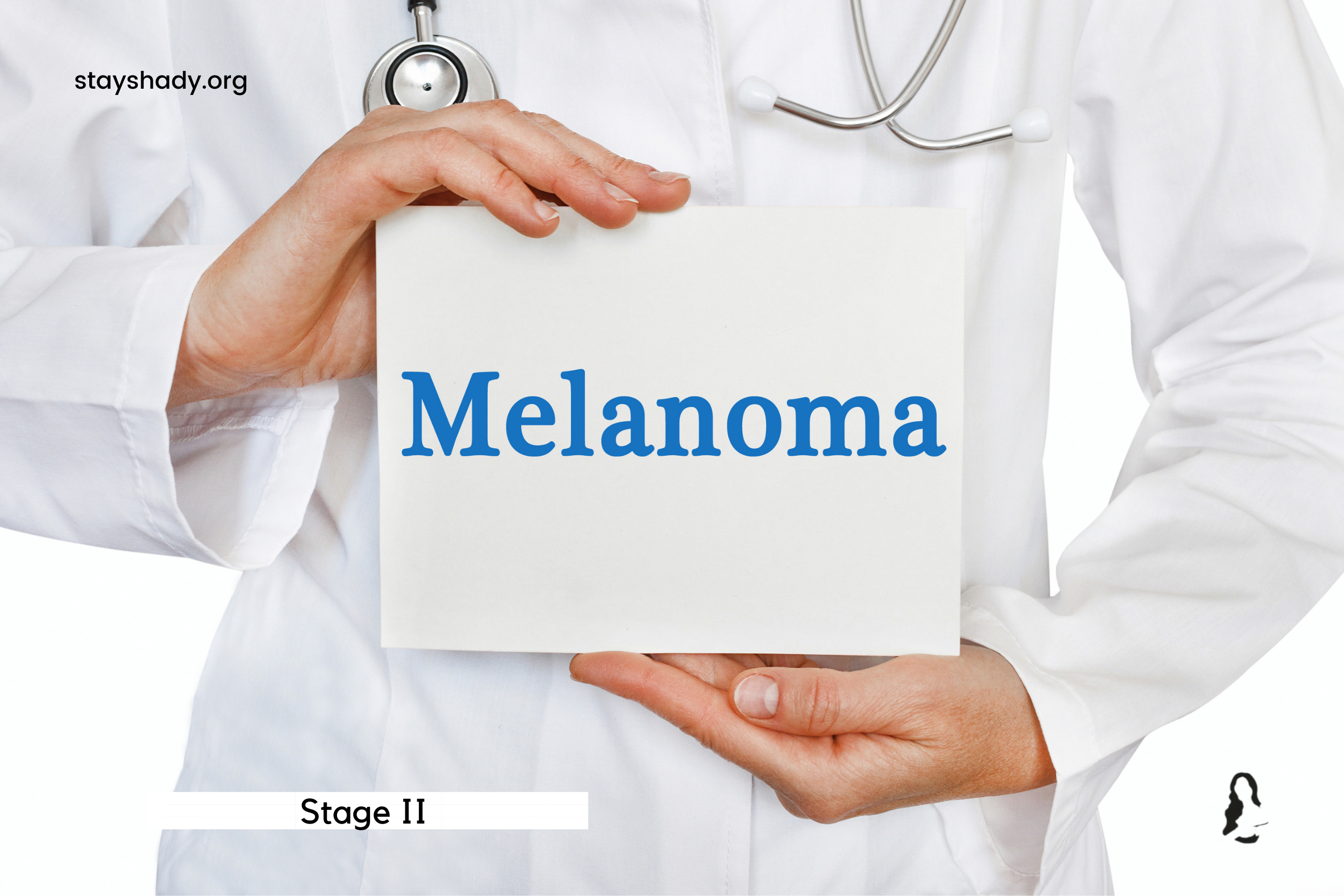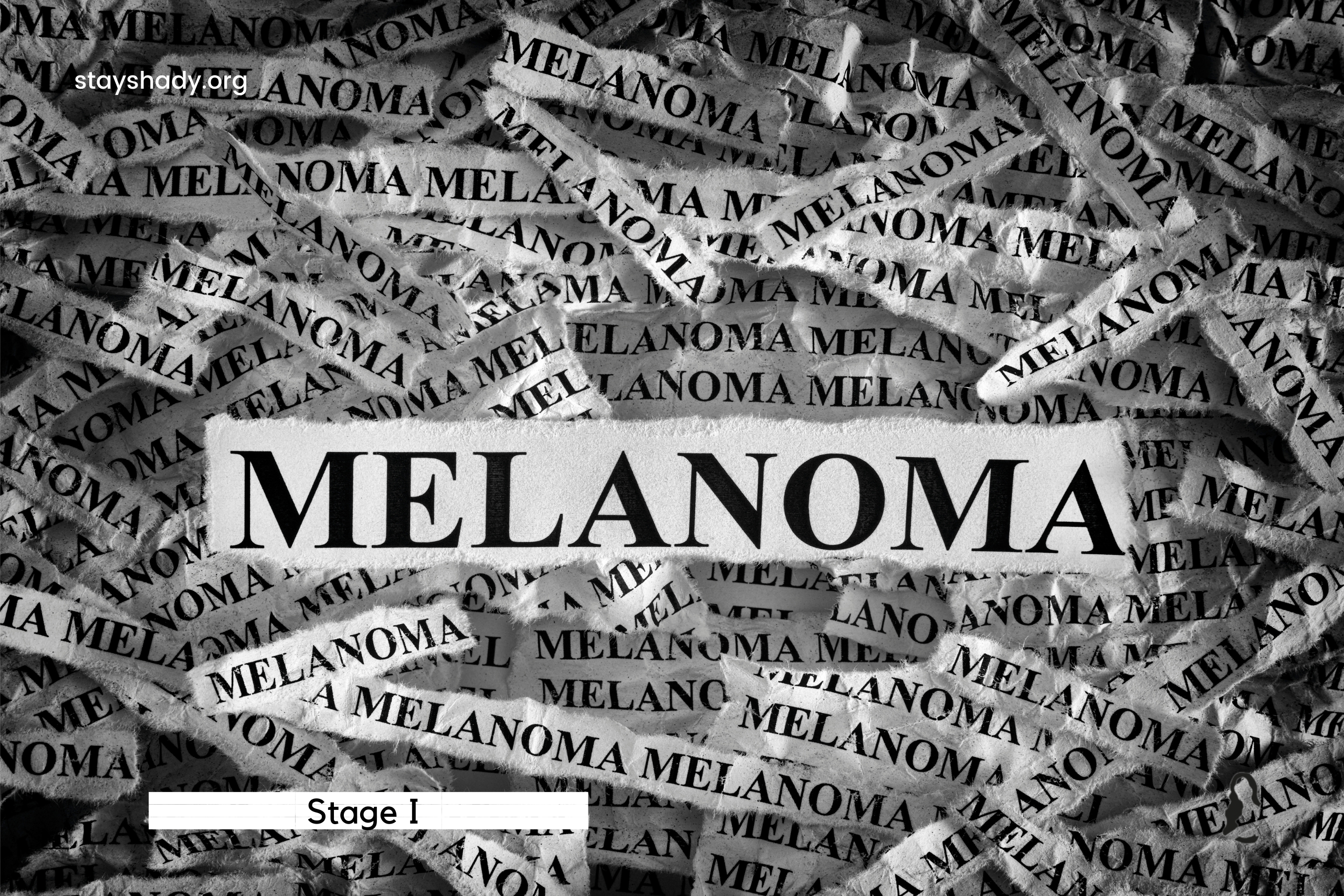
by Katie | Jul 22, 2022 | Skin Cancer
It is classified as such, in situ, which means that it occurs in the uppermost layers of skin. Superficial spreading melanoma usually appears as a thin patch that spreads outwards (known as radial growth) before it invades vertically into the dermis, the lower layer...

by Katie | Nov 17, 2021 | Skin Cancer
Stage IV, is defined by 3 primary characteristics:1) Location of distant metastases.2) Number and size of your tumors3) LDH level. Stage IV melanoma is determined by the spread beyond the regional lymph nodes to distant sites. It’s important to know within Stage IV,...

by Katie | Oct 12, 2021 | Skin Cancer
Stage III (invasive melanoma) is about the level of lymph node(s) that have melanoma, if it has spread to one or more the nearest lymph nodes. This stage is very complex and super detailed, so I’ll be sharing this in two parts! So let’s starts with PART 1: If the...

by Katie | Sep 14, 2021 | Skin Cancer
Stage II melanoma, the cancer cells are both the first and second layer of your skin, the epidermis and dermis. Unfortunately the melanoma is at higher risk, than if you were in Stage I. This is based off of the depth of tumor or the ulceration. In Stage II, there is...

by Katie | Aug 16, 2021 | Skin Cancer
Stage I melanoma is up to 2mm thick (Breslow thickness or how deep the mole is. This stage, typically if caught early, ends up with no evidence the cancer has spread to lymph nodes or distant sites, called metastasize. Risk of this happening is low. There are two...

by Katie | Aug 12, 2021 | Skin Cancer
In Stage 0 melanoma, is local melanoma, meaning it has not spread beyond the primary tumor. The original malignant tumor is still confined to the upper layer of the skin. The cancer cells are only in the epidermis, or the outer portion of the skin and hasn’t grown...







